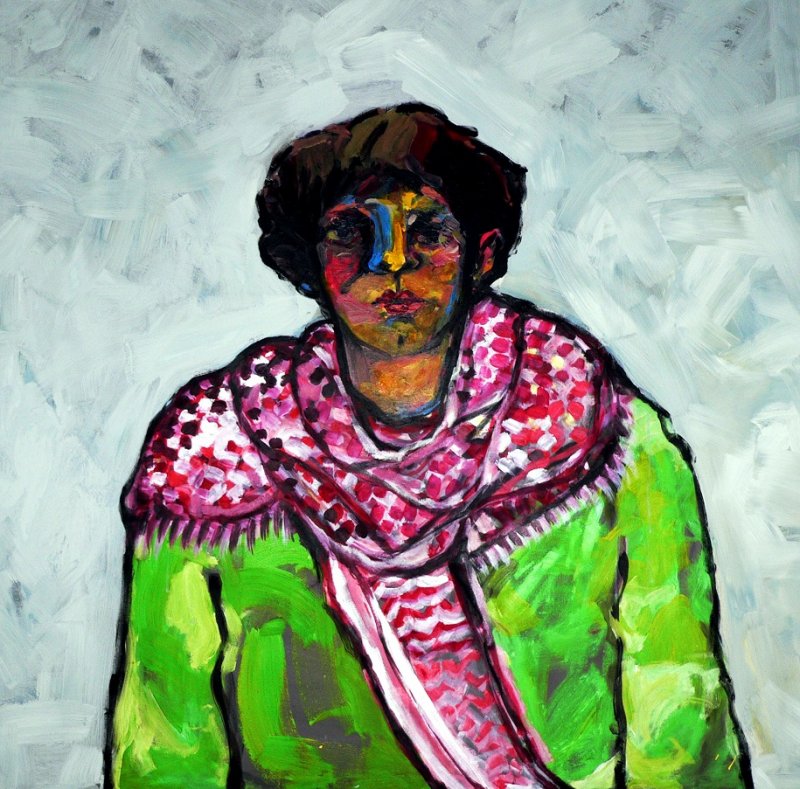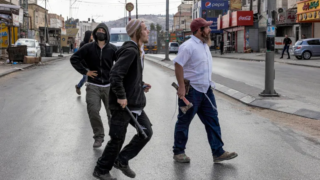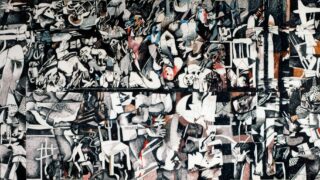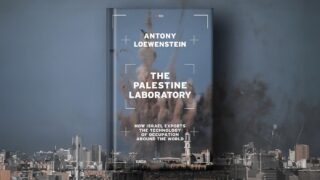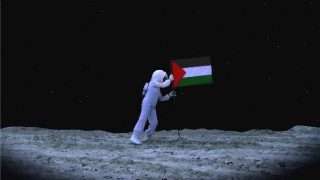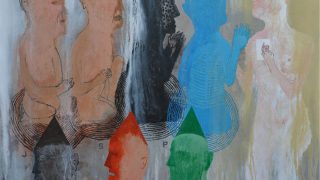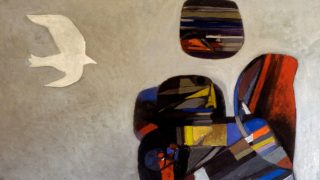Perhaps it is the fate of oppressed people to worry about their past. Maybe it’s the protective instinct in us, or it could simply be me, I don’t know. But whenever politicians paint new horizons for my people, I fear more for the past more than I do for the future. On commemorative occasions like land day, this fear is amplified. And so I ask myself, if peace should come one day between Palestinians and Israelis, what will happen to our past? What would it mean to commemorate the land in this hypothetical future? This might be strange question, given that the Israeli-Palestinian “peace process” has led to more war, oppression, and colonization, than to peace. But even so, the question is worthwhile pondering. Any attempt to shape our future is an attempt to shape our past, and so one needs to think of the two jointly.
I decided to do exactly that. I tucked my people’s memories in box and projected myself into a hypothetical future as it was imagined by those seeking to bring us “peace.” As I point of departure, I chose the “The Valley of Peace,” a gigantic 30 billion dollar peace project that seeks to transform the Arabehvalley into a capitalist paradise. The project has been widely endorsed by the Quartet, the US, Turkey, Germany, Japan and a range of Israeli and Arab entrepreneurs. One should not see here an individual project, but a facet of a liberal peacebuilding strategy that has dominated international affairs since the end of the cold war. The underlying idea is that capitalism solves conflict. The multilateral negotiations of the Madrid conference were largely influenced by this idea that “open borders and economic partnership will bring about prosperity, which will, in turn, produce a peace that constitutes more than merely an end to war.” Today it exists in calls for “economic peace” and neoliberal reforms within the region.By boosting economic cooperation and interdependence between Israel, Jordan, and the Palestinian Authority, The Valley of Peace would contribute to solving this intractable conflict once and for all.
All this was quite abstract. To get a closer look at what this future might look like, I consulted an online promotional video for the Valley of Peace, and what a magical place it was. Its setting was the Arabeh valley that borders Israel and Jordan, but borders were nowhere to be found—no barbed wire, no checkpoints, and no watch towers. Instead, tall glass buildings toweredboth sides of a canal that linked the Dead Sea to the Red Sea. Silent trains and high tech cars zigzagged through spacious and green urban patches where we could see shopping malls, luxury apartments, water parks, and even the world’s biggest botanical garden! “The valley of peace will bring unequivocal change to the entire region,” the narrator of the video assures us, “the barren desert will flourish, and the arid lands will bloom with greenery on both sides of the border.” At the end of the video, we see the Israeli, Palestinian, Lebanese, Jordanian and Egyptian flags wave in unison. These banners once rallied armies against one another, now they symbolized a harmonious unity brought together by wealth, profit, and free trade.
I realize that,for readers of this article, this is a painful stretch of the imagination, but allow me to stretch it even further by asking: what would it mean to remember land day in such a setting? What would the land mean in a place where territory is a commodity to be bought and sold? If a group of protestors marched in these streets to commemorate the land, would their message resonate in any way or form? One can only guess that it would not. Even worse, in this capitalist utopia, our attachment to the land would appear as backward rather than forward looking. Talk about liberating the land would sound hollow in a setting where peace means to liberalize it. And once again, our past would be silenced, but this time, not in the name of war, but in that of a supposed peace. And so, I continue to worry when such scenarios are depicted to me. To alleviate my fears, I continue to remember, not out of nostalgia for a mythical past, but to cultivate the hope of an alternative future.
Israeli Ministry of Foreign Affairs “The Middle East Process. The Multilateral negotiations”
“The Valley of Peace Initiative” [n.d] , video clip, accessed November 10, 2013, Youtube.

